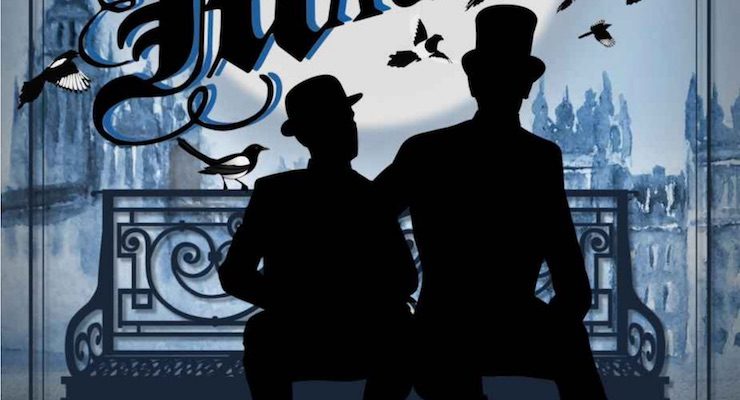I started reading KJ Charles’ novels on the recommendation of Foz Meadows, who told me she’d devoured a dozen of them in less than a week. (It may have been three days: I don’t recall exactly, but it was a strikingly short period.)
The same thing happened to me. I devoured them down, one after the other, the historical novels and the historical novels with fantasy elements both. Because KJ Charles writes really lovely romances about entertaining boys with really quite inconvenient problems—ranging from attempted murder to magical power plays, and from competing politics to blackmail and potential ruin.
These are stories about men who love men. This isn’t, I will confess, my usual bailiwick (I’m more drawn to books where emotional connections between women occupy prime position) but they’re so good, so appealing, and so interested in differences in status and worldview, that I really have no option but to recommend them to your attention.
I’ll recommend the fantasy ones here, of course. The “Charm of Magpies” continuity: five novels and a novella set in a 19th-century England where magic exists, albeit discreetly. Three of these novels comprise a trilogy focused on the same two characters—Stephen Day and Lucien Vaudrey, sixth Earl Crane.
In the first novel, The Magpie Lord, Lord Crane is subject to an alarming magical attack that is trying to get him to take his own life. Day, a practitioner of the magical arts and one of a handful of people who essentially do magical law enforcement, is asked to help him. Day has no reason to like Crane: Crane’s elder brother Hector was a rapist and a brute, and Crane’s father covered for and supported him. (Crane himself was exiled to Shanghai with only his manservant Merrick and absolutely no money or support, only returning to England more than a year after his father’s and his brother’s death.) Crane’s family ruined Day’s father, and Day’s family.
But Day is possessed of iron-hard ethics, and Crane is very different to his father and elder brother. Their initial mutual dislike becomes respect, and over the course of three books—The Magpie Lord, A Case of Possession, and Flight of Magpies—Crane and Day fall in lust, fall in love, develop a strong romantic and magical partnership, and face challenges to their relationship. (The largest challenge is probably that each of them possesses an outsized share of stubbornness and pride.)
Jackdaw, set in the same continuity, stars a magical thief and a former police constable. (The police constable is former because the thief seduced him during an arrest and got him hard labour: the tragedy is that they were already lovers, and the constable didn’t know that the thief was a thief.) Jackdaw is the story of how the constable’s quest for revenge becomes a quest to rebuild trust and survive loving a thief who’s never learned how to earn an honest living. It’s a fun novel, but not nearly as fun as the stories featuring Crispin the (former) blood magician and Ned the wasteman (a trader in waste paper).
A Queer Trade, the novella which introduces Crispin and Ned, is a fun romp involving magical hijinks and possessed objects. Rag and Bone, the subsequent novel, is a much more complicated beast: part of it is a magical murder mystery, but another part of it is an examination of the difficulties that face two people from very different backgrounds trying to engage in a relationship as equals. Ned (black, a businessman, poor in comparison to his lover) and Crispin (white, educated, a gentleman and a magical practitioner) have a bumpy road to travel in order to arrive at a happy ending—all the more bumpy for the fact that the magicians of London have no trust for Crispin because he was trained as a blood magician, and Crispin is the only magician who might be able to attest to the fact that poor people in London are probably being magically murdered.
KJ Charles has a deft hand with characterisation, and a compelling ability to tell a story. I’m looking forward to reading more of her work.

Liz Bourke is a cranky queer person who reads books. She holds a Ph.D in Classics from Trinity College, Dublin. Her first book, Sleeping With Monsters, a collection of reviews and criticism, is published by Aqueduct Press this year. Find her at her blog, where she’s been known to talk about even more books thanks to her Patreon supporters. Or find her at her Twitter. She supports the work of the Irish Refugee Council and the Abortion Rights Campaign.










